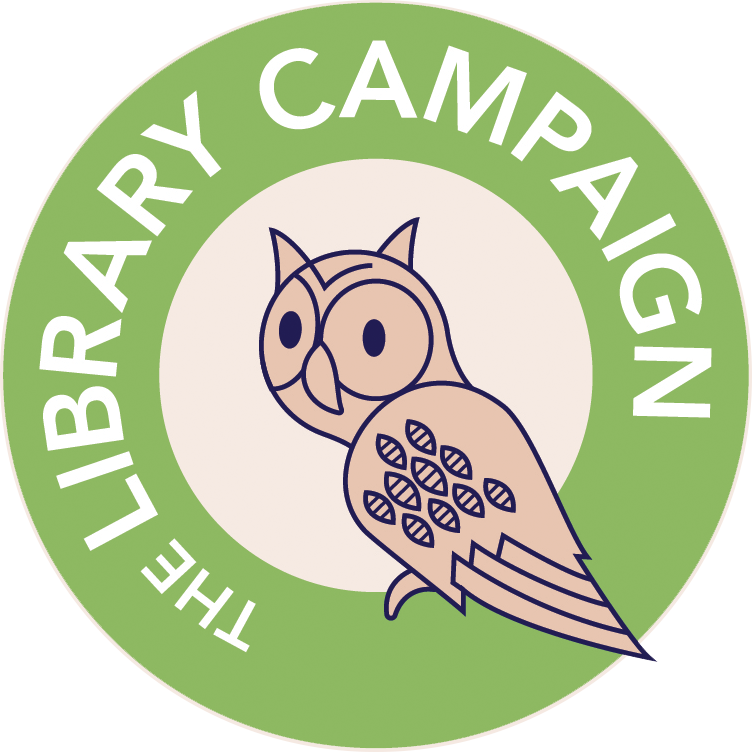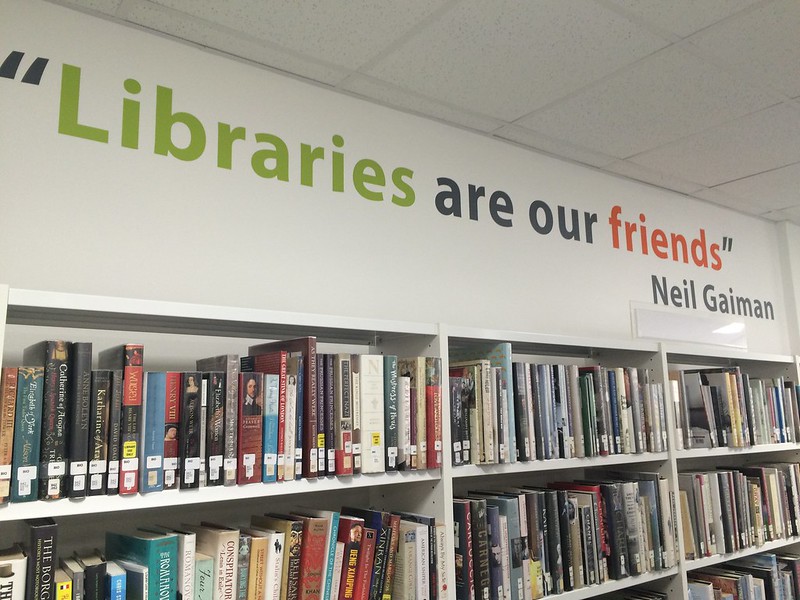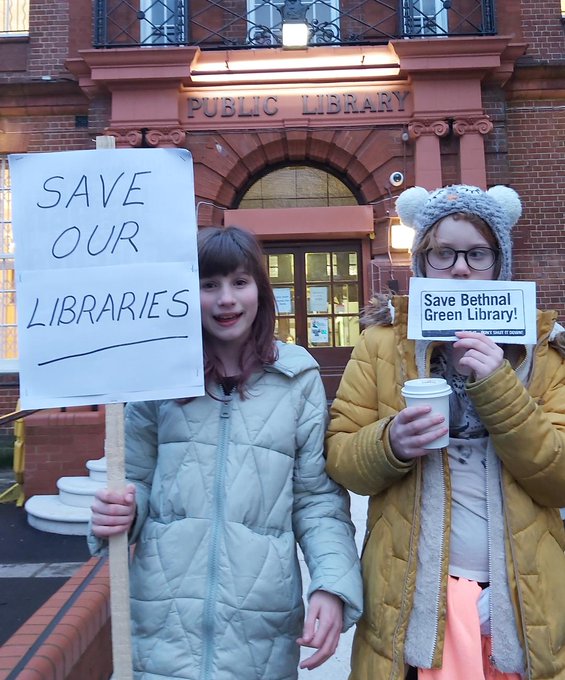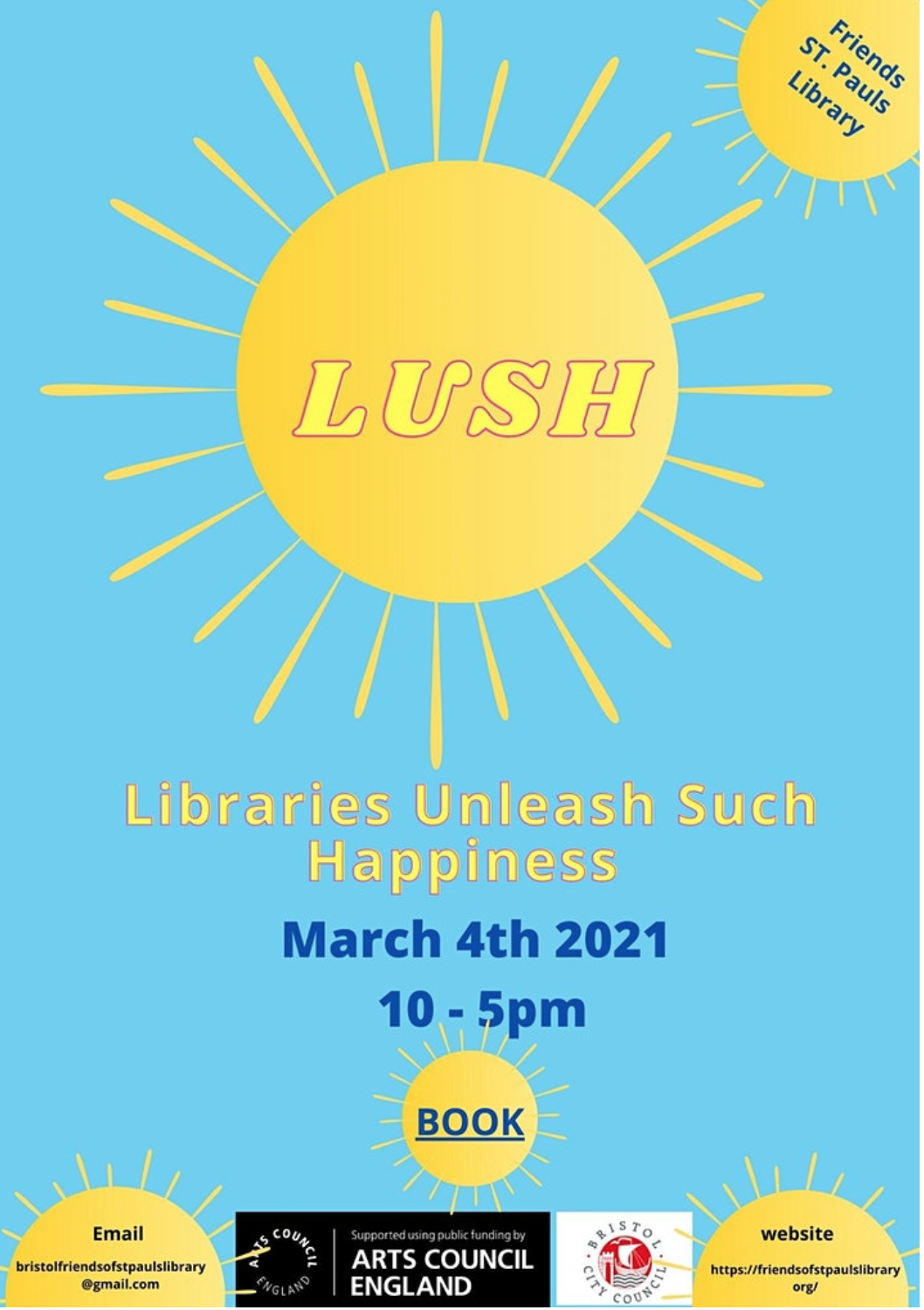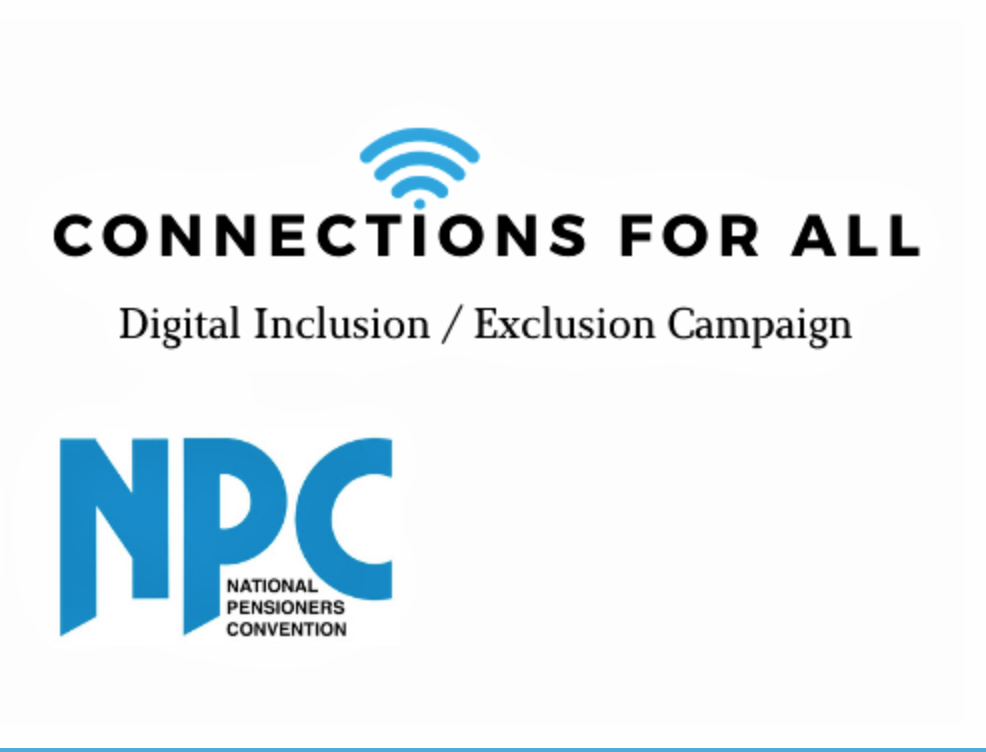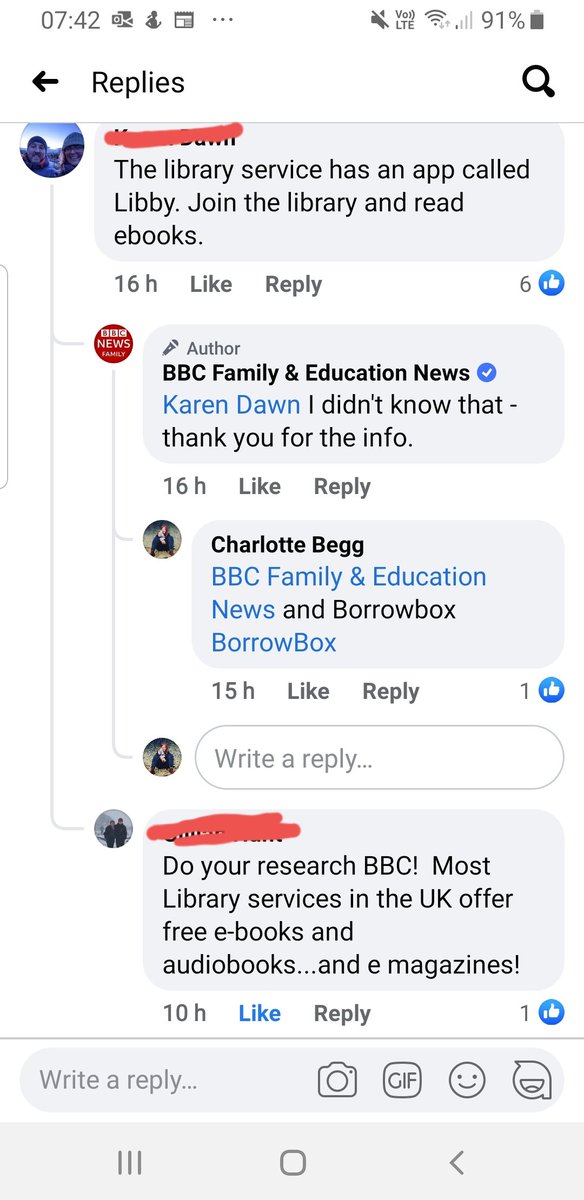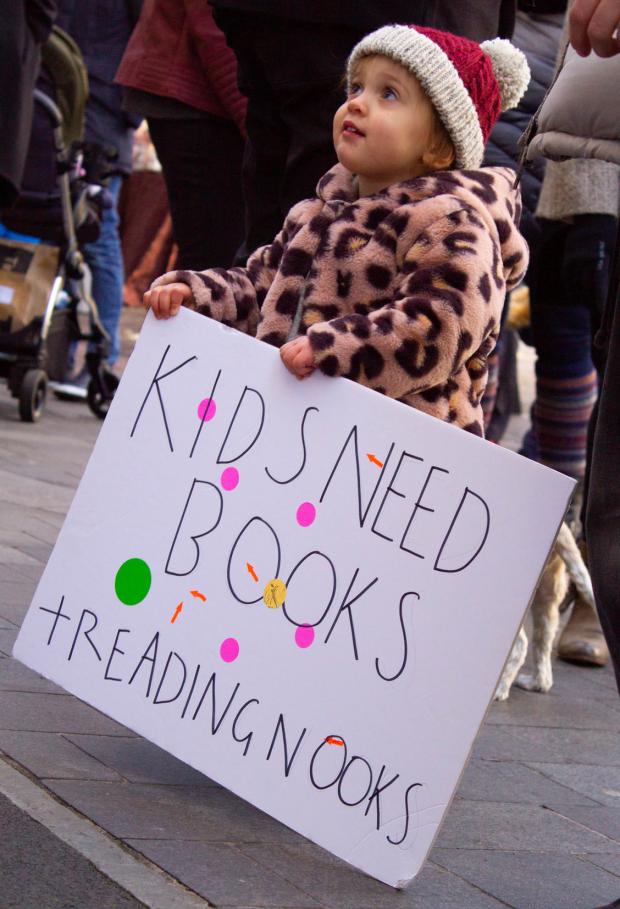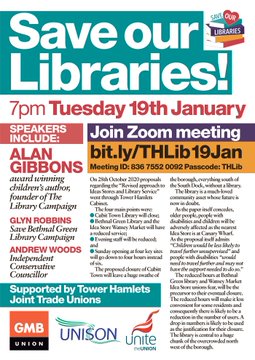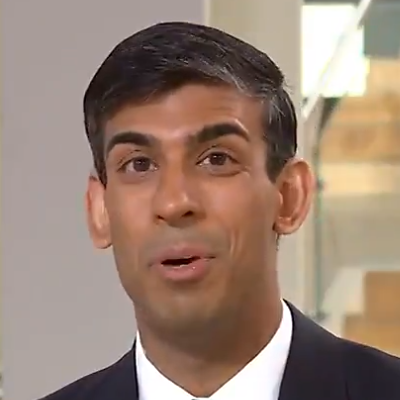The Library Campaign will join other campaigners at 3pm to discuss the threat to our libraries… with particular reference to the LGBT+ community. See the image above for booking details.
The Library Campaign is urging local councils to set their budgets – without sabotaging their best post-pandemic asset. Despite dire financial problems, there is one cut no council should make… a cut to its library service.
“As lockdown slowly eases, it is obvious that massive unmet needs will be revealed – some urgent, some complex. Help must be accessible, at local level. And it must be expert help, by experienced staff,” says TLC chair Laura Swaffield. “Public libraries, in effect, provide a chain of local, trusted, multi-function drop-in centres. “Their cost is a tiny fraction of any council’s budget – less than 1%.”
The damage from cutting libraries would cost far more than any savings made. This cost would fall on other council departments, including education, public health, youth services and social services.
HERE’S WHY…
▪ Libraries are uniquely trusted as a source of information. This trust has been built up over decades. Misinformation has flourished during lockdown. Some – such as anti-vaccination – has cost lives and still does. So there will clearly be a need for trusted information on essential issues such as Covid-19, health (including mental health), domestic violence, council services and benefits.
▪ Equally important for many will be IT access – with support needed from expert staff. Benefits claims and job searches/applications will be key.
▪ Also crucial will be support for children, from the very young (and their parents/carers) to schoolchildren trying to “catch up”. Books are a uniquely cheap source of escapism and entertainment. Reading for pleasure has been proved time and again to be the main predictor of progress in education – in all subjects, including maths. Libraries even have a special programme called the Summer Reading Challenge, which uses child-friendly gimmicks to get children reading.
▪ For adults, libraries supply a large range of reference material – in particular, business support that is beyond the budget of any start-up or SME. They are also a core point of access to skills training of all kinds. At a time of mass upheavals in the jobs landscape, these will be much needed. ▪ Many aspects of daily life will be more devolved to local level. Those working from home will need local resources, and often local desk space. Library services have already seen increased use of local branches. This is not the time to sabotage them.
▪ Finally, local libraries will be vital in restoring the mental health of adults. Books, and the many other leisure resources such as DVDs, newspapers and magazines, must be freely available – especially to those who have suffered financially during lock-down and will continue to do so.
▪ Group activities, which must be run by skilled practitioners, will be of more value than they have ever been. Isolation and loneliness, depression and anxiety, are not problems that will disappear spontaneously. Library-run groups cater for every age group, from young families to the elderly, teens and students to minority ethnic groups.
Local libraries offer a lot, at a very small price. They are a bargain for any council.
Councils simply cannot afford to lose them.
Saved – for now, anyway. That’s the great news from Tower Hamlets, east London, where a determined campaign led the council last week (4 March) to scrap its library cuts. There will be a “review” in 18 months. Planning to meet any future challenge starts now…
TLC talked to Glyn Robbins, one of the main organisers of the public campaign. All the local unions – Unison, Unite, GMB – backed the campaign. But public support is vital, Glyn says. A campaign can be dismissed by politicians as self-interested workers “just defending their jobs”. Showing that libraries are vital to communities makes that much harder. Also vital was a clear, simple and united message – just leave the libraries alone.
Here’s a tip: start early! Steady opposition began as soon as preliminary plans were aired last November. They included closing two (out of eight) libraries, running down two others, sacking 35 staff (one-fifth of the total) and reducing hours, to save £1m (from a budget of £4.4m). A further £600,000 was somehow to be saved through “online provision”.
By March, concessions had whittled down the projected saving to just £365,000. And it was obvious that the damage to services – and the council’s reputation – wasn’t worth such a small sum.
The campaign proper began in January. An online open-to-all meeting attracted 200 people. The speakers included Glyn plus long-time campaigners (and TLC allies) Alan Gibbons and Alan Wylie.
Then everyone piled in.
* The pandemic was a constant theme. “You shouldn’t close libraries ever, but certainly not now!”
* Children, with help from the scouts, made a powerful video about their need for libraries.
* An online petition collected 2,300 signatures (Glyn says signatures from outside the borough were valuable, telling the council that “other people are watching you”.)
* Social media spread this and other messages. Seeing all the likes and re-tweets were really encouraging, says Glyn – “you can’t run a campaign these days without social media”. Among the celebs who signalled their support were Alex Wheatle, Malorie Blackman, Michael Rosen, Stella Duffy, Patrick Gale, Kate Hudson and Vaseem Khan.
* The local paper covered the story, of course.
* Local author Kate Thompson got an article into the Guardian. Fortuitously, she is just now publishing a book on how the local library (evacuated underground) helped East Enders survive the blitz…
* Another local author, Jackie Lees, printed and distributed (with help!) 2,500 leaflets about her own local library, Cubitt Town, where she researched her book on Bob Dylan.
* A powerful letter was sent to the mayor by Michael Rosen and local authors Kate, Louise Raw and Sarah Wise, plus professors at Birkbeck College and local university Queen Mary’s. The names, says Glyn, were collected via personal contacts. It helps to have experienced local campaigners who have built up such contacts.
* A local MP, Apsana Begum, helped. Another did not…
* Apart from opposition councillors, a dozen from the ruling Labour party voiced their unease behind the scenes. An uncomfortable split developed…
It helps, says Glyn, that this area has “a strong political counter-culture” built on events such as scandals surrounding former mayor Lutfur Rahman and before that George Galloway’s Respect campaign.
“It was all fairly well planned and co-ordinated. All the pieces worked together,” says Glyn. “It created a momentum, pushed the council on to the defensive, wore them down. “They didn’t seem to understand the wellspring from which all these feelings came.”
Well, they do now.
Apsana Begum, Labour MP for Poplar & Limehouse (London) is rightly
alarmed at the drastic library cuts planned for her patch in Tower
Hamlets.
She has set up an Early Day Motion on libraries – and it needs MPs’ signatures.
It’s here: https://bit.ly/3beWJHD
Has your MP signed? If not – ask them why not!
The wording is:
That this House notes the ongoing concerns on the effect of austerity
on local library services and that the covid-19 pandemic has led to
new worries that financial pressures on local authorities could mean
further cuts and reductions to services;
– believes in the value of local libraries and that despite the growth
in digital technologies, there is still a clear need to physically
access books and a demand within communities for modern, safe,
non-judgemental, flexible library spaces for people of all ages,
supported by the help and knowledge of the library workforce;
– further notes that local libraries are particularly important for
the vulnerable in society who need support and guidance and for
children and young people who benefit from engagement with libraries
outside of the formal classroom environment;
– is concerned that the covid-19 pandemic has highlighted existing
educational inequalities and the digital divide, and that many do not
have access to devices or internet provision;
– and calls on the Government to ensure that libraries are reopened
when it is safe as part of a sustainable, long-term future for local
public libraries.
The Library Campaign has no involvement with this event but it looks interesting. The organisers say: “Our inaugural conference welcomes representatives from Libraries Friends groups from all over the country. The event provides a treasure trove of ideas for activities, fundraising and community elevation. We are delighted to welcome keynote speakers Lemn Sissay, poet and performer, and Ron Finley, guerilla gardener as well as Chanje Kunde who will be performing a specially commissioned piece to uplift us all.12 thought-provoking workshops, spaces to share practical suggestions and ask questions. A place to listen. A place to be heard. A place to be inspired. Join us and bring some oomph to your Friends group.Places are limited so we are keen to ensure places for participants from inner city libraries to this event. Please state Inner city beside your name on your reservation. Book https://www.eventbrite.co.uk/e/136324978681. For more information, please email bristolfriendsofstpaulslibrary@gmail.com“
The Connections for All webinar takes place on Monday, 1st February (11am). It brings together a panel of leading experts to discuss the need to keep millions of the UK’s oldest and most vulnerable connected. Not only will they examine how to help more older people get online, the speakers will also consider how to keep those who cannot, or do not want to get online to stay connected.
“The National Pensioners’ Convention (NPC) Connections for All webinar marks the launch of the first part of the NPC’s campaign to end digital poverty and exclusion, and promote digital inclusion for older people through training and access to free broadband, free online security, and to digital devices.”
The webinar will also look at how ‘digital poverty’ is isolating and endangering older people at a webinar for Dignity Action Day 2021.
To read the full press release, get the agenda and to register for the event, please go to the NPC website.
Given the closure of libraries at present (and increasing threats to them generally, the idea that many of their loyal users can simply go online is questionable at best. This seminar should be interesting in exploring that and other problems of digital exclusion.
JAWS DROPPED recently when the BBC innocently announced a wonderful new scheme – to provide schoolkids with just ONE free e-book per week (the same book for everyone).
Yet any child (or adult) can contact their public library and get any number of free e-books – plus audio-books, e-comics, a massive choice of reference works, worldwide newspapers and magazines, and usually a lot more.
Three-quarters of services ran huge extra online programmes during the last lockdown, with anything from rhymetimes for toddlers to coding clubs and kids’ reading groups. And no doubt are doing so again.
THE BBC DIDN’T KNOW
The BBC just didn’t know. Lottie Begg (Public Library Apparel) tracked down – of all things – the BBC’s “Family & Education News”. They were grateful to find out…
That’s Library Campaign gripe no 1. Why on earth is our “national” library service so useless at publicising the most basic facts about what libraries do? If a BBC specialist department doesn’t know, how is Joe Public to find out?
There’s always grand talk about “advocacy”. There’s a government department, and a national Libraries Taskforce, and the Arts Council, and a number of national library bodies… but they have never put their heads together and mounted a single, sustained publicity campaign.
We see the result in steadily falling use of library services by people who would love them – and endless library cuts and closures.
THERE’S NO WEBSITE
This leads us to Library Campaign gripe no 2. There is no single, attractive, user-friendly, national libraries website to find out what libraries offer.
Wales can do it – and in two languages! https://libraries.wales and https://llyfrgelloedd.cymru
For years, England has laboured mightily to produce the same kind of thing – grandly called the “single digital portal”.
Nothing.
The project has now landed with the British Library, last heard from last August. Plus, confusingly, news of one of the government’s go-to companies, DXW, apparently now doing much the same thing. Projects have come and gone. Nick Poole of CILIP can name “at least three, going back 22 years to the People’s Network Discover Service”.
Partial attempts are more numerous than that. TLC can’t untangle it all in one news story.
Nick Poole explains: “Each [project] foundered on the fragmented nature of the public library sector, and an unwillingness to take a single common action. That hasn’t changed.”
Well, it should.
LOCKDOWN – WHAT A WASTE!
Thousands of people – somehow – found their way to local online services during the first lockdown. Usage rocketed, despite mostly poor local publicity. If only there had been an easy way for people to get the info…
Ian Anstice (www.publiclibrariesnews.com) says: “There is a widespread acceptance that we do not need another report or more research. We just need a website with stuff on it.
“The fact that we have had nothing during the lockdown… should and does cause great anger.
“Let’s get this done before other services, other agencies, take other things off us that should so obviously be within our sphere.”
TLC agrees!
FIVE Croydon libraries are under threat, again!
If the proposed cuts are made, this will affect the whole library service
in Croydon – far fewer staff, loss of book stock, fewer places to access
library services, a fragmented, postcode lottery service, likely to
adversely affect those that need the service most.
Croydon Council is already spending considerably less on our library
service than similar local authorities. Further cuts will push it to
breaking point, says campaign group SaveCroydon Libraries.
*There is an online meeting on Thursday night this week*.
Please attend if you can. You need to book by Wednesday night. Details here: https://croydoncc.wordpress.com/2021/01/16/public-meeting-croydon-libraries-under-threat-thurs-21-january-2021/
You’ll also find there notes from the meeting held in
December, with lawyers from Watkins & Gunn.
*Save Croydon Libraries petition* Do please sign the
petition and share it! https://savecroydonlibraries.wordpress.com/2020/12/02/sign-the-petition/
Residents in Croydon love their libraries. The campaigns for individual libraries combined forces as Save Croydon Libraries campaign to fight the cuts more effectively in the past, and are already networking again. Friends of South Norwood Library has joined with Save Sanderstead Library campaign and there are plans for a campaign for Shirley library too.
Croydon Council’s dire situation has been laid bare, following the release of their auditor’s Report in the Public Interest. Corporate blindness was highlighted as just one of the issues that caused the council to issue not one, but two, Section 114 notices, in succession.
Whilst there have been lots of assurances given that there will be a genuine consultation undertaken in the new year – not snuck out in the pre-Christmas period, it is extremely worrying to learn that councillors and at least one Croydon MP are already promoting community-run models for libraries. This action severely undermines the Council’s message that a genuine consultation will take place.
The Cabinet member responsible, whilst promising a consultation in the new year, has made clear that these libraries would need to run at cost neutral to the council. The fact is that libraries cost relatively little to run but deliver a lot, if well run and well managed.
The value of libraries to deliver was outlined in the Red Quadrant report, commissioned by the current council administration in 2018, no doubt at cost to the residents of Croydon. It also outlined recommendations that would lead to cuts and de-staffing of libraries.
The clear message from all previous campaigns to save our libraries in Croydon is that people really value:
- the staffing of the libraries – skilled library workers and librarians to guide, inform, engage
- the library being open and staffed in accessible locations, so people can access them when they need them and feel safe to do so, with the assistance they need on hand
- good book stock and facilities – The Council administration has signed up to be part of the London Libraries Consortium which has had a positive effect on addressing the very poor book stock available in our libraries after successive cuts. The introduction of no fee to reserve an item was another positive step introduced by the current administration.
- the range of service delivered – access to IT, a place for shelter, for education, to connect with others and the local community, provision of information and support, for homework, research, spaces to study, support to complete online applications and searches, for leisure, to access council and local community information as well as advice and resources for health and wellbeing. The list goes on!
Concerns are that all this will be lost, and more!
I’m chairing a meeting via Zoom on 16 December 2020 as a follow up to meetings we’ve held previously on libraries, with my other hat as Chair of CCC – a community group in Croydon. I’ll be declaring my interest at the meeting, as I have before and before that! A solicitor and associate of Watkins and Gunn, a law firm that has fought cases for public libraries through to Judicial Review at the High Court, will be attending to offer advice.
Public libraries is not a party-political issue, it is a community issue. I’d encourage anyone with an interest in Croydon libraries to get involved.
Details of the meeting can be found here.
Elizabeth Ash
Save Croydon Libraries Campaign
It’s that time of year again… the always-awful national statistics collected by CIPFA (Chartered Institute of Public Finance & Accountancy). And as always, people are weighing in with their interpretations. Here’s ours…
Yes, the national picture is worse. But is that so very surprising? Spending has dropped (as usual), this time by 2.6%, or almost £20m.
Professional staff numbers are down by a neatly-matching 2.4%. Service points fell from 3,685 to 3,667.
Scarily, visits are down by more – 5% – though at 214,624,452 it’s still a very big figure. Online ‘visits’ were up by 12 million (131 million total in 2019-20). That’s a very healthy trend.
A total of 165,885,367 books were issued, compared with 174,695,508 in 2018-19. There were 7.3 million ‘active borrowers’. That’s another big figure, which deserves a big voice.
Councils may be looking to dump more services on to volunteers, as yet more painful cuts bite. They might note the latest trend: there are fewer volunteers now (50,128, compared to 51,478 in 2018-19) and they are having to work harder (1,841,776 hours compared to 1,816,425). Not exactly a sign of sustainability, is it?
Rob Whiteman, CIPFA CEO (pictured) rightly says: ‘The steep drop in spending on British libraries is further evidence that local authorities continue to have to do more with less – and this is having a significant impact on resources that are vital to our local communities.’
BUT HANG ON!
NOTE no 1: these figures are, as always, way out of date. They go up only to the end of March 2020. So they miss everything that happened during lockdown and later, including the spectacular rise in online visits. Read about it in TLC magazine no 100, on this website.
NOTE no 2: the figures are, as always, national. They don’t highlight regional variations. This is a tragedy. The vast jungle of stats collected by CIPFA are never analysed to find out which services are doing well, which badly – and why. A student on a 4-week placement found out a heap of useful info, including 31 services that increased visits and 10 that increased book issues – despite cuts. See TLC magazine no 97, on this website. What a wasted opportunity to find out how to reverse the decline that always hits the headlines!
More statistics: https://www.cipfa.org/about-cipfa/press-office/latest-press-releases/spend-on-british-libraries-drops-by-nearly-20m
There was a twitter of excitement when Rishi Sunak tweeted the word ‘libraries’ in his spending review news.
Give him credit. It is, we think, unprecedented for a Chancellor to show any awareness of libraries when in full budget-speak mode.
‘Today I’m announcing a new Levelling Up Fund worth £4bn,’ he said. ‘Any local area will be able to bid directly to fund local projects…
‘This is about funding the infrastructure of everyday life: a new bypass, upgraded railway stations, less traffic, more libraries, museums, and galleries… the things people want and places need.’
That’s nice. Unfortunately that’s the end of the good news.
‘Libraries’ will, in this context, necessarily mean fancy new buildings, competing for a very modest £4bn against a mass of other possibilities. And councils aren’t currently keen on capital investment that will have revenue implications…
Day-to-day costs
Meanwhile, public libraries won’t be getting what they really need – proper day-to-day funding for local councils.
The Local Government Association has analysed Rishi’s deal and concludes it is not enough: ‘Councils will still have to find savings to already stretched budgets to plug funding gaps and meet their legal duty to set a balanced budget next year… this will be a blow to our communities and will hamper local and national recovery efforts.’
Broadband narrows…
The small print shows that the government has abandoned its election pledge to give all homes superfast broadband by 2025. The target falls to 85%; the budget falls from £5bn to £1.25bn. This when lockdown has shown as never before how essential it is to be online.
Helen Milner of Good Things Foundation sees hope in plans for a £3bn training scheme for jobs. This, she argues, surely must include basic digital skills. But we don’t know yet.
‘Let’s invest so we all have brilliant broadband, but there’s no investment to help the nine million people who can’t use it – I didn’t see that investment in the plans.’
Short-term
Finally Nick Poole of CILIP (Chartered Institute of Library & Information Professionals) foresees that the economic downturn will mean more redundancies for librarians – they are starting already. The public sector pay freeze will obviously hurt many.
That £4bn ‘levelling up’ fund is, he adds, an example of ‘the “Big Fund” approach to policy… while it plays well in the press, the Big Fund is a short-term measure in a world crying out for long-term answers’.
‘In all,’ Nick concludes, ‘you can see what the Chancellor is trying to do, but there is a real sense that this government will struggle to move forward until it acknowledges and makes good on the damage wrought by austerity.
‘This is not a level playing field. Our public services are not healthy and robust. Our infrastructure is not ready. Economic inequality is still growing, as is the number of “left behind” communities.’
Dear Rishi Sunak
The Library Campaign is asking you to pay local councils what is owed them for vital lockdown services, such as public libraries.
As Chancellor, your first responsibility is to fund essential services – and ensure that provision is good value.
According to public services union Unison, English councils have been short-changed by at least £10bn – despite government promises to cover their full costs.
Yet hundreds of billions have gone to businesses, many of which failed to deliver. Privately-run test and trace alone has largely wasted £12bn.
During England’s first lockdown, libraries improvised massive new online services to keep people entertained, informed and connected – as well as helping other council services with their people and information skills, to support vulnerable locals.
Yet the government contributed just £1,000 per library authority to buy extra e-books – a drop in the ocean. Nothing else. And the promise to supply laptops to schoolkids remains far short of fulfilment.
Most library services rapidly created online versions of: daily story and rhyme sessions for small children, book groups, clubs and activities for older children, author events, quizzes and discussions, material for schools, help for benefits claimants – even festival events such as Pride. For many people, these were a lifeline.
National organisation Libraries Connected negotiated deals with publishers to waive their charges for extra online content, such as family history tracing.
Everything was done at almost zero extra cost.
All this on top of libraries’ normal provision of online books and audiobooks, newspapers, magazines, films, training courses, business and reference resources, academic papers and more.
Demand for these has doubled or trebled – and showed no sign of reducing even when buildings re-opened.
This extra demand must somehow be funded, while services must also spend heavily on making safe their much-missed buildings and print books.
Councils meanwhile were a main frontline lockdown service, providing food parcels, telephone support, volunteer teams, advice on Covid-19, information on local infection rates, guidance on confusing lockdown rules – and, increasingly, tracing of contacts missed by the government’s disastrous privately-run test and trace system.
Reports are now coming in of councils planning to make huge cuts to library services, or dump them on volunteers. Yet they have proved their worth as never before. And they are needed more than ever.
Libraries will also be badly needed to aid eventual recovery.
Education, internet access (with help), social support, business support – local libraries are the key access point for all of these.
Plus, of course, free books and DVDs to make fun and relaxation available to everyone…
Libraries have long been used to fill the gaps in many other public services.
It is time they were funded to do it. They cannot go on making bricks without straw indefinitely.
You are looking at The Library Campaign’s new website, launched on Thursday 19 November. We welcome comments and suggestions about the site and its content – we cannot promise to act on all of them but will certainly read them. The new edition of our magazine is now on its way to members – a pdf is available from the Magazine page.
Got something to say about public libraries? Join Libraries Connected
online session for library supporters and users on 21 August to explore
what quality means for a modern library service. Book FREE place here:
https://www.eventbrite.co.uk/e/what-does-quality-mean-for-a-modern-library-service-tickets-116201887975
A virtual consultation event exploring what quality means for a modern
library service.
Got something to say about libraries?
Libraries Connected are working with Arts Council England and CILIP to
develop an accreditation framework for public libraries.
An important part of this work is to engage as many people who care
about libraries as possible.
In this event we will be exploring the question ‘What does quality
mean for a modern library service?’.
The session will begin with some provocations from speakers outside of
the sector talking about what a quality library service means to them.
The virtual floor will then be open to everyone who would like to
contribute, or just listen in on what should be a great discussion.
If you would like to attend, please register and the joining details
will be sent to you in advance of Friday 21 August.
The session is open to everyone who supports or cares about libraries.
The British Library and The National Archives are partners on this
project and Shared Intelligence are leading on its delivery.
Last week saw the first signs of a possible trend we all dread…
1. Leeds City Council announced a financial hole “as severe as it
gets”. If there is no relief the council must “pare our spending right
back” – and close all its cultural institutions.
There is a legal duty to provide libraries, but the idea of an
online-only service is being floated.
2. Peterborough’s Vivacity leisure trust collapsed, dragging its
libraries down with the rest of its services. It has been handed back
to the cash-strapped council.
This adds to the strong body of evidence that shows government bright
ideas to make public services run like businesses don’t work.
The Library Campaign says these danger signs must lead to action.
NOW
The COVID-19 lockdown has proved yet again that public libraries are
flexible, quick to adapt – and very, very cheap to run.
Despite the closure of all buildings, service use has rocketed – often
by 600%. Library staff have devised countless new free services, on
top of their already massive online offer. All on a shoe-string
budget. Meanwhile, library users are making it clear they miss their
local physical branches.
Libraries are more needed than ever as the lockdown loosens and people
need trusted help in rebuilding their lives.
The Library Campaign says:
1. Government must protect libraries. It would cost only a tiny
fraction of the multi-billions it is spending on lockdown support.
The entire network for the whole UK costs just £750m a year. This buys
over 3,000 uniquely trusted, free drop-in centres – plus strong online
provision. The service covers everyone from toddlers to academics
seeking research papers.
2. The DCMS (Department for Culture, Media & Sport) must rule that
online-only services do not fulfil councils’ duty to provide a
“comprehensive and efficient service available to all”.
THE LIBRARY CAMPAIGN HAS SENT EVIDENCE TO THE DCMS SELECT COMMITTEE ON COVID-19.
A special concern is that the DCMS working group on libraries
re-opening gives almost no representation to local council libraries,
while being packed with representatives of volunteers and trusts.
These provide only a tiny proportion of library services and (as
Peterborough proves yet again) are not a proven model.
Ironically, librarians’ professional bodies* already have a re-opening
toolkit ready to use. It has been ready forth weeks, waiting for
government approval…
* led by Libraries Connected, which represents council library heads
A company called DCA (Digital Content Associates), which exists to promote library usage, has issued a survey to ask about that is available in or through libraries during lockdown and what should happen afterwards They have kindly agreed to give £1 to the Campaign for each completed survey and if you do the survey you can enter a draw, the size for which is £100 worth of premium tea (or a £100 donation to the Campaign.)
The survey is aimed at librarians, so library users may not be able to answer all the questions, but you can encourage local library staff to do so.
Save Our Libraries Essex (SOLE) has announced an online public meeting to be streamed live on Facebook as well as available on Zoom. It will be at 19:00 on Monday 8 June 2020. Apart from SOLE representatives, the meeting will be addressed by Nicci Gerrard, who is half of bestselling author Nicci French, and who spoke at SOLE’s first public event – a march and rally in Chelmsford in early 2019.
Libraries Connected has produced a toolkit for public libraries to sue when considering reopening after the coronavirus lockdown. Their Chief Executive describes what they have done here. At the time of writing very few English authorities have published plans to re-open in any way, though this will very likely change soon.
Loved EMMA the movie? Here’s an idea – try reading the book!
CILIP has come up with a whole bunch of resources for you (or your reading group) to get the most fun out of the critically acclaimed film and the Jane Austen original – including background info, discussion points, where to go to visit the film’s locations, and an interview with the screenwriter (and award-winning novelist) Eleanor Catton.
The interview concludes with a quote from library-loving Catton: ‘It’s such a completely and utterly radical idea, and so out of kilter with the dominant ideologies of today – that you can go into a library and, at no cost to yourself, enlarge your life.
